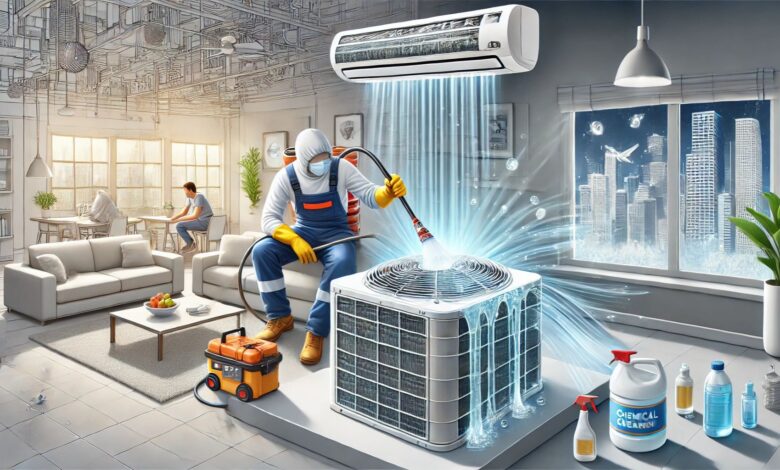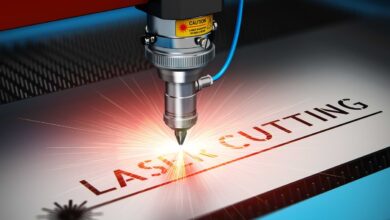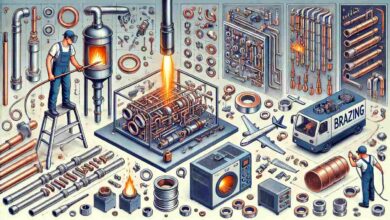Aircon Chemical Wash Services for Cooler and Cleaner Air

Air conditioners have been proven to be very beneficial appliances in tropical climates because heat is relentless and humidity is always there. It provides not only relief from hot temperatures but also gives you better quality indoor air. In time, however, air conditioners become accumulated with dirt, mold, and bacteria which greatly affect their efficiency and hygiene. Aircon chemical washing comes through in such cases. Such process is relatively termed specialized cleaning that is designed specifically to clean and increase longevity of an air conditioning unit. Visit Handy Man Singapore to engage professionals that can perform chemical wash on filthy air conditioner.
What Really is an Aircon Chemical Wash?
An aircon chemical wash comprises of complete disassembly of the air-conditioning system for cleaning the crucial components with chemical solutions. It’s different from the general aircon servicing, which basically includes surface cleaning, because this service goes deeper and identifies the stubborn dirt, grease, and grime accumulated inside parts such as the evaporator coil, fan coil, condenser, and drainage pipes. Visit Handy Man Singapore to learn about prices of chemical wash and other air conditioner service packages.
The Advantages of Aircon Chemical Washing
Better Cooling Efficiency
Dirt and grime can accumulate in coil and filter of air-conditioning unit over a long period, thereby restricting flow of air and cooling capacity. A chemical wash clears this obstruction, allowing air conditioner to cool effectively and quickly reach the desired temperature.
Prevention of Water Leakage
Blocked drainage pipes are some of the common causes of water leaks in air conditioning units. The chemical wash dissolves these clogs and inhibits water accumulation, which stops leaks.
Increased Energy Efficiency
A clean air conditioner would not consume a huge amount of energy for it to operate efficiently. A chemical wash removes dirt that reduces strain on system and electricity bills.
How is an Aircon Chemical Wash Performed?
- Disassembly
The aircon unit is properly disassembled to separate components that include the fan coil along with evaporator coil and drainage system.
- Inspection
A thorough inspection is worth it for ruling out problems such as leakage, defective parts, or almost severe buildups of dirt.
- Chemical Cleaning
The dirt, grease, and mold are dissolved by treating each component in a specially formulated chemical solution. Evaporator coil and the fan coil are scrubbed with that solution. The blockage in drainage pipes is cleared by flushing them with solution.
- Rinsing
The above components are then rinsed with water to wash out excess chemicals, thus making them safe for use.
- Reassembly and Testing
Cleaned parts are then reassembled, and the air conditioner is put through an efficiency test.
When Should You Schedule for An Aircon Chemical Wash?
It depends on many factors, like intensity of use, environmental conditions, and type of air conditioner, to answer this question about time frequency of when chemical washes are to be done. In general:
- Residential-type air conditioners require chemical wash once in every 6-12 months.
- Commercial or industrial units that run more intensively require cleaning every 3-6 months.
The signs that an air conditioner needs chemical wash include reduced effectiveness of cooling, strange noises, leakage, or musty smell.
Final Thoughts
Not only is it just a cleaning procedure; but an aircon chemical wash is indeed an investment into the health, comfort, and efficiency which your indoor environment provides. Absence of dirt, mold, and blockages in your air conditioner mean cooler air, better air quality, and lesser energy costs. Be it for the longevity of your air conditioner, or to address performance issues in the air conditioner, scheduling a chemical wash on a regular basis is indeed a sensible investment for the future.





